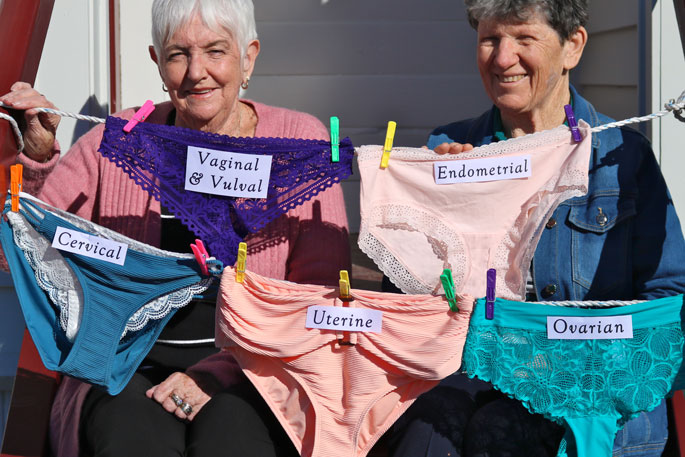Mother's Day this year coincides with World Ovarian Cancer Day on Sunday, May 8. In recognition of these two auspicious days, local Rural Women New Zealand has organised a health day in Te Puke to educate women about gynaecological cancers.
'Women of all ages and stages and from all walks of life are welcome,” says organiser Margaret Scrimgeour.
Ovarian cancer survivor, and founder of Talk Peach Gynaecological Cancer Foundation, Tash Crosby will talk about the symptoms to watch out for and how early detection could be life-saving.
Local women Debbie Robins and Sjaan Fahey will be sharing their gynaecological cancer journeys and answering questions.
'While New Zealanders now talk quite freely about breast cancer, we are still prudish about a woman's other reproductive parts and the cancers ‘down there' that could kill your mother or your daughter,” says RWNZ leader Mary McTavish.
'The survival rate of those diagnosed with ovarian cancer is less than half that of breast or prostate cancer,” says Mary, herself a cancer-survivor.
'One wahine dies from ovarian cancer every 48 hours, which is more than the number of women killed on our roads.
'RWNZ want to put ovarian and the other gynaecological cancers – cervical, uterine, vaginal, vulval –on the same footing as breast cancer.”
'Educating women in NZ about when to go to their doctor to ask for a CA125blood test and ultrasound could significantly reduce this statistic,” says Tash.
'Unfortunately, the only gynaecological cancer routinely screened for is cervical cancer – for all others, you need to ask for a test.
Tash says women ignore the signs as they are similar to symptoms experienced during menstruation, menopause, pregnancy, or post-childbirth. Symptoms can include bloating, peeing more, unusual discharge, and pain in the abdomen, back, legs, bowel or vagina.
'More than 85 per cent of women diagnosed have ovarian cancer detected too late for effective treatment.”
Debbie Robins was one such statistic. Horticulturist and mother of three, Debbie, was diagnosed with low-grade ovarian cancer in 2019 and given a life expectancy of up to nine years.
'My new motto is to do what I want to do today, not put it off until tomorrow. I want to live the life I have left to its fullest,” says Debbie.
Tash says Debbie's experience is not unique. She says gynaecological cancers symptoms may be vague and variable and are not ones you would typically associate with a deadly disease.
'A worrying four out of five women will be misdiagnosed with IBS, constipation, stress, depression, or a UTI.”
Avocado grower and mother to three young children, Sjaan Fahey, was diagnosed with cervical cancer at age 33 in March 2020. She was given a 40 per cent chance of making it to her 40th birthday.
Sjaan says the school HPV vaccination programme could probably have prevented her cancer if she had been young enough to have been included. Sjaan urges all young people to have the vaccine before becoming sexually active.
'HPV is the most common sexually transmitted infection in NZ, with 80 per cent of people contracting it at some point in their lives.”
This Mother's Day, RWNZ encourage you to give a gift that may help save a life; let your mum, your nan, your sister, your daughter, and your friend know about the signs of the gynaecological cancers.
A handout of symptoms will be available on the day but are also online at: www.talkpeach.org.nz
For more information, visit RWNZ Tauranga on Facebook or Instagram.
On Friday, May 6, the ‘Let's Talk About Cancers Down There' event will take place at the Te Puke Hall from 10am-2pm.



0 comments
Leave a Comment
You must be logged in to make a comment.